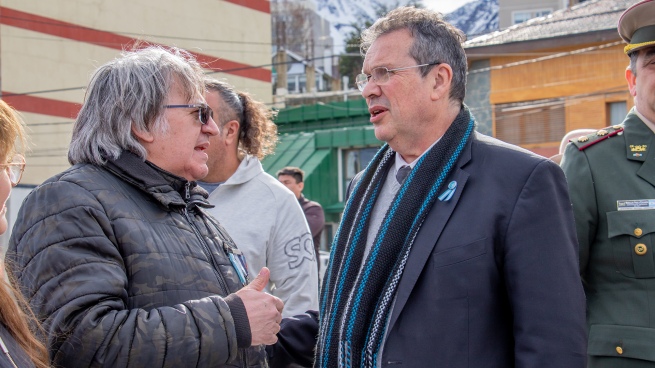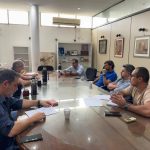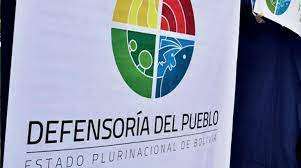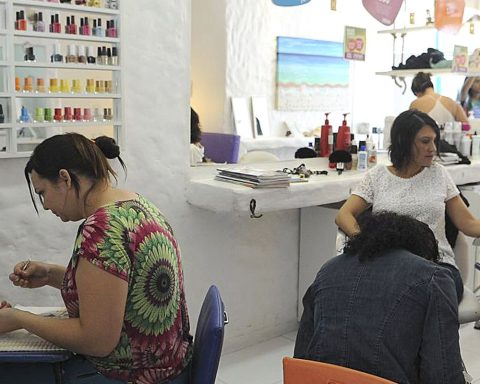The Minister of Culture of the Nation, Tristán Bauer, assured this Friday that “the role of popular libraries as cultural centers is essential”, as well as “the centrality they have for our education and training”, during the central act of the Day National Library of Popular Libraries that was held together with the head of Conabip, María del Carmen Bianchi, at the Sarmiento Popular Library in Ushuaia.
During the ceremony, which served as the closing ceremony for a day throughout the country that focused on the 40th anniversary of the Malvinas War, Bauer congratulated and thanked “from the heart” “all the librarians and library collaborators”, and He said that “what they do is really exceptional and it’s wonderful.”
The act where the book was presented “Malvinas: childhood memories in times of war” with the presence of some of its authors, such as Eduardo Sacheriwas broadcast live on Conabip’s YouTube channel and was complemented by simultaneous activities throughout the country.
Bauer – who paid tribute to the former Malvinas combatants and called for a fight “against all the frightful forms of colonialism” – said that books like the one presented at the Sarmiento Library serve to “rediscover one’s own memories in those times of war”.
Bianchi referred to the value of popular libraries and highlighted that “many prominent writers in the country” were “trained” in them: “that is the sowing, but also many people found their vocation or a helping hand in a difficult moment of life . The popular library is a heart of the community that beats with the excuse of reading”, he stated.
The head of Conabip stressed that the agency’s resilient condition: “it is an institution that has gone through three centuries and many vicissitudes, reconverting itself each time and seeking new ways of thinking about reading and providing a service to the community.”
On the Malvinas cause, he opined that “in these times where colonialism has adopted forms of cultural bestiality and devastation, reading and writing are acts of resistance against this proposal of fierce individualism.”
In that sense, he explained that the book aimed for the writers to tell their personal experiences from the eyes of children, accompanied by renowned illustrators, including Fernanda García Lao, Roberta Iannamico, María Pia López, Luciano Saracino, Mariano Quirós, Eduardo Sacheri, Pablo Bernasconi, Leo Oyola, Matías Trillo, Julián Axat, Cynthia Orensztajn, Nicolás Arispe, Costhanzo Gustavo Murillo.
“The result is a beautiful book -summarized Bianchi- where there are tender stories and other educational ones as different ways of thinking about the conflict from the present”.

“The war -said the official- was a painful, sad episode with consequences that still mark us today, but the struggle for sovereignty does not end and is capable of being converted into words”
Among the writers present was Sacheri, who told Télam that he was “pleased” to be invited: “I did not hesitate to feel it as a common cause, in the sense of the few things that unite us in Argentina. Malvinas is one of those causes that they deserve that we all join in and for me it was an honor”.
The author of “The question of their eyes” and “The night of the power plant”, explained that remembering Malvinas represents “a sadness and at the same time a pride”, because “it implies removing the suffering of Argentines who suffered a lot at that time” , while it is “one of the few great causes that unite us,” he insisted.
Meanwhile, he recalled that he was 14 years old in 1982 and that he could not avoid “that roller coaster of emotions that the war generated in society: a mixture of surprise, joy and naivety. Over time one realizes the mistakes he made, in the sense of not anticipating how much pain the hubbub could unleash, “she said.
“At that time, for us, who lived in a neighborhood of Greater Buenos Aires, the war was far from us. We only had that festive decoration of which we were not able to understand its terrible consequences,” he recalled.
For Sacheri, “that is a lesson that has remained with us” but that “at some point the combatants overshadowed the communication, there was a lot of regret and guilt and that silence they suffered; a situation that luckily is now much more balanced from recognition of war veterans.

“From Río Negro to the south, you can see a different memory of the war, and Ushuaia is a great example of that. Here they lived the war, not only the vindication”, highlighted the author of “Papers in the wind”, while he stressed that “if reading has an imperishable value for any society, the libraries, which are in every town, in every city and in every neighborhood, they are essential and do a very important job. That is another cause in which we all, regardless of our positions on politics, should agree.”
Sacheri publicly read part of his story published in the book, about a fish vendor from his neighborhood, of Italian origin, who was encouraged to have an anti-war speech in the days when the country welcomed the recovery of the islands.
Other stories recalled mothers crying or correcting their children for celebrating the war, or painted the scene of children in a kindergarten strangely participating in a simulated war attack.
The book published by Conabip brings together chronicles and stories written and illustrated by 27 authors born between 1960 and 1980, whose childhood was spent in Argentina and in exile, specially summoned to recover the child’s gaze, emotional memory and daily life in the context of the Malvinas War and the military dictatorship that devastated the country.
The selection of works and the prologue was in charge of María Teresa Andruetto and the cover illustration is the work of Isol Misenta.
The authors and illustrators that complete it are Raquel Cané, Natalia Ferreyra, Viviana Ayilef, Silvia Mellado, Ariel Williams, Poly Bernatene, María Elina Méndez, Marcelo Guerrieri, Patricia Suárez, Alejandra Kamiya and Sergio De Matteo.
The book will have free distribution in popular libraries in Argentina and is now available in digital format.

Before the event, the delegation paid tribute to the former combatants, which included the placement of a floral offering at the Monument to the Fallen during the Malvinas War, located on the shore of the Beagle Channel, and a visit to the Pensar Malvinas Museum, also in the capital. from Tierra del Fuego.
For this they were accompanied by provincial and municipal authorities, as well as members of the “Centro de Ex Combatientes de Malvinas de Ushuaia” and “Heirs of the Malvinas Cause”, a group created by the children of war veterans.
The national delegation that visited Tierra del Fuego for the presentation also visited the Museum of the End of the World and the Museum of the City Prison and the Alfonsina Storni popular library.
The agenda of celebrations for the Day of the Popular Libraries included presentations in Santa Rosa (La Pampa), Oberá (Misiones), Chascomús (Buenos Aires) and San Juan.
In Santa Rosa, the book was presented by the Pampean writer Sergio de Matteo and the Neuquén writer Silvia Mellado. In Oberá, the writer Mariano Quirós, a native of Chaco, was present, accompanied by the nurse Elsa Mabel Rodas, who was part of the Puerto Belgrano Naval Hospital in 1982.
The illustrator and president of the Association of Cartoonists of Argentina, Norberto “Poly” Bernatene, was in San Juan, while a “Drawing Marathon” was held at the Franklin Rawson Provincial Museum of Fine Arts, in which the San Juan cartoonist Lucas also participated. Aguirre.
While in Chascomús, Conabip and the Buenos Aires Cultural Institute organized activities with a mobile library and presented the book by the writer Alejandra Kamiya and the writer Marcelo Guerrieri.



















